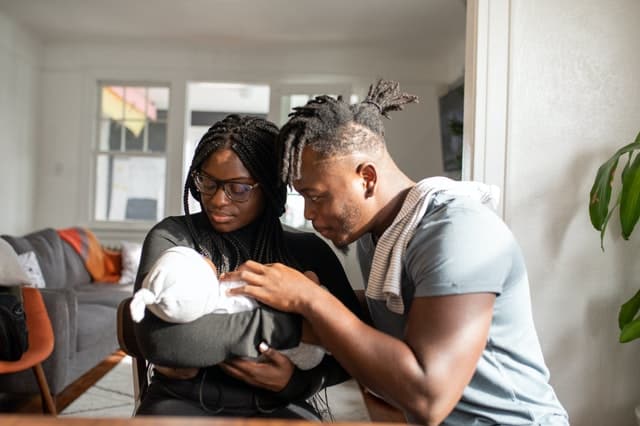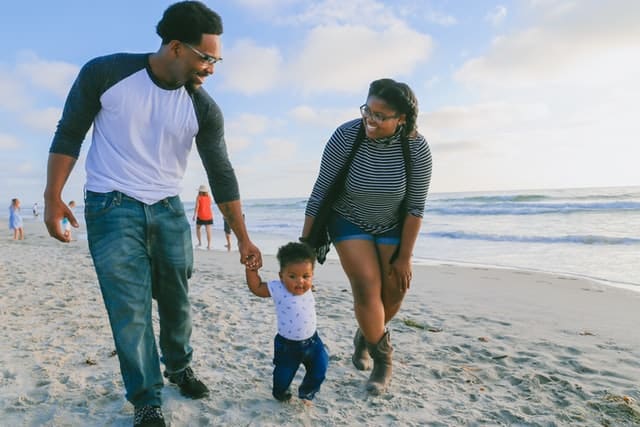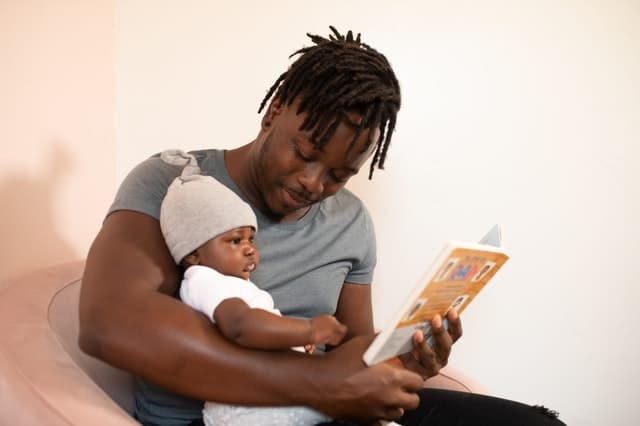Be a good teacher for your baby by showing them how to look at, listen to, touch, or smell, and generally explore their expanding world.
Babies learn by exploring the things around them. Hold your babies so they can see things; help them hold objects like socks or a rattle. As babies grow, give them safe objects to feel, shake or even put in their mouths (make sure they are clean or like chicken drumsticks).
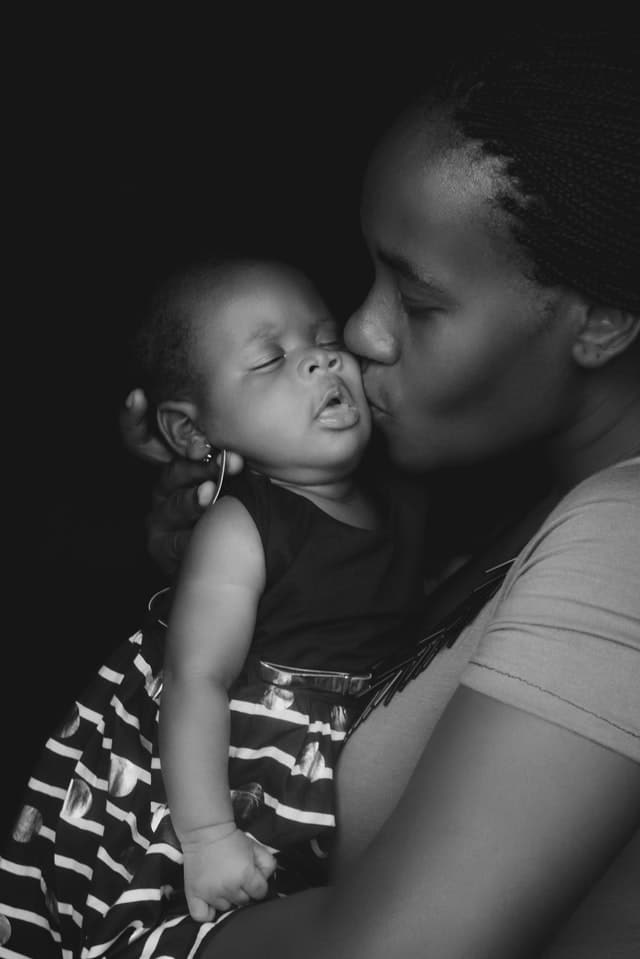
Here are ways in which parents can be involved in their baby’s development through infancy:
- Be your babies’ teacher. They will see how you react to things. When you get excited about a toy or object, she’ll get excited too. As she grows, show her how things work—for example, how doors open and close. Talk about what you are doing. For example, “I am putting the food in the pot to cook it.” Talking to babies also encourages them to hear new words and sounds.
- When babies are learning something new, it helps them to try it again and again. With your help and support, this can be fun, and your baby will like trying new things. Encouragement is key in getting your baby to try new things.
- Protect your baby from unsafe situations. A baby doesn’t understand right from wrong. They do not know what things are dangerous for them to do. Watch and keep them safe. Remove them from situations where they can be hurt or injured.
- Talk and sing to your baby. Even before they are able to speak, this helps them develop language skills. Babies learn best when you talk to them constantly from a young age. Read to your babies from the earliest months of their lives and continue this habit as they grow up.
- Children get their interest in reading from being introduced to it early from home, so read to your baby, you can also get them books that they can touch to feel different textures. Babies also love to hear the voice of their parents so reading to them is quite soothing.
You can tell what your baby is feeling by changes in her expression. You can also see what she is feeling by her posture, movements, and the sounds she makes. Here are important things to note about your baby: Read Also [Newborn Baby Tips]
Babies Have People Skills Too
From the start, your baby is interested in your face. They notice your expressions and tone of voice and also react to your emotions. For example, when you say something in a soft and loving way, they will relax and feel more secure. In the same way, when you are agitated or stressed your baby directly feels this as well.
Scientists have learned that babies show emotions as early as when they are one month old. Something else scientists have learned is that feeling good helps babies learn better. Why? Happy babies are more alert, attentive, and responsive. Babies remember things better when they are happy and at ease. The way you hold and talk to your baby can help her feel happy.
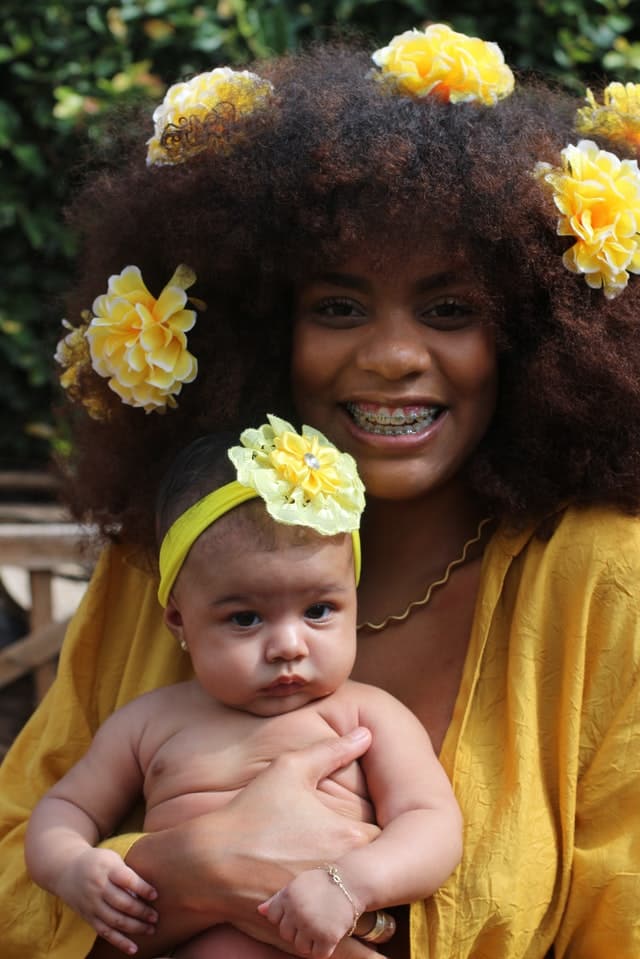
Babies who are alert and feeling good are more likely to look at things, explore, and play. They will pay attention more. Share on X
Babies who are alert and feeling good are more likely to look at things, explore, and play. They will pay attention more. Brief periods of distress or difficulty will occur and these will not harm or cause long-term damage to your child. However babies communicate their feelings by crying, so you should do something quickly to help them feel better. When their needs are met quickly and consistently they will learn you care about what they try to tell you. Long periods of negative emotion, like crying can be harmful and add to a baby’s anxiety when they do not feel secure that their needs will be cared for.
In the first month, the negative emotion that occurs is distress or a response to pain. Later, they will show sadness and anger; next comes fear. All people have these emotions to protect themselves. Help your baby be at ease with having emotions. Respond to their emotions in a warm and loving way.
Learning to Communicate
It will be months before your baby says her first word. But babies start learning about language much earlier.
Even in the first few weeks after birth, your baby is learning about language. Very young babies can tell the difference between speech and other sounds. They can tell the difference between the voices of men and the voices of women. They even know the voices of their own mothers. Babies can tell the voice of their mothers from the voices of other women. Researchers think babies are able to do this because of the way specific parts of their brains work.
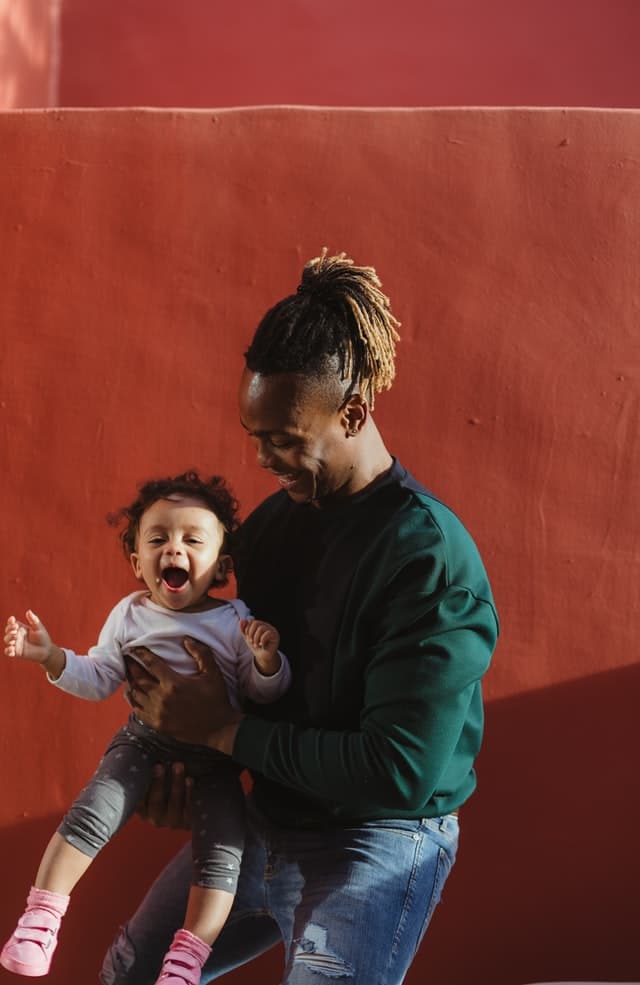
Right now, your babies can tell you if they need something by fussing or crying. They can also let you know when they like something or someone by looking intently. Babies learn best how to tell parents what they like or do not like when they begin to see that parents respond to them in positive ways.
Right now, your babies can tell you if they need something by fussing or crying. They can also let you know when they like something or someone by looking intently. Babies learn best how to tell parents what they like or do not like when… Share on XEven before she can speak, you need to talk to your baby. Even though there are differences among individuals, babies whose parents talk to them talk sooner. They also have larger vocabularies. Talking to babies gives them language skills that will help them learn more easily when they get to school. Hearing words on the radio or TV is not very helpful to babies learning a language. Your baby benefits from having you up close smiling, talking, and singing.
Babies Cry for Lots of Reasons
Crying is the way newborns communicate. Your new baby cries to let you know he or she needs or wants something.
The first thing to try when babies cry is to feed them. By noticing when they want to be fed and not, you will learn which cries mean that they are hungry, uncomfortable, or want attention. Sometimes they will want to be held or want a change of diapers, sometimes they are just tired or bored. As you and your baby get to know each other, you will sometimes be able to tell the difference between each kind of crying. You can then try to give them what they need.
Taking care of your baby when they cry will not spoil them. It will help your baby feel loved and secure. Smile, touch, and talk to your baby as often as possible. Do this when you feed them, change their diaper, or give them a bath. Your babies will learn that they can rely on you to take care of them.
Ways to Soothe Your Baby
Sometimes babies cry even when they have been fed, have clean diapers, and are healthy. If your baby is crying because he or she needs comfort, there are many things you can do. Every baby is different.
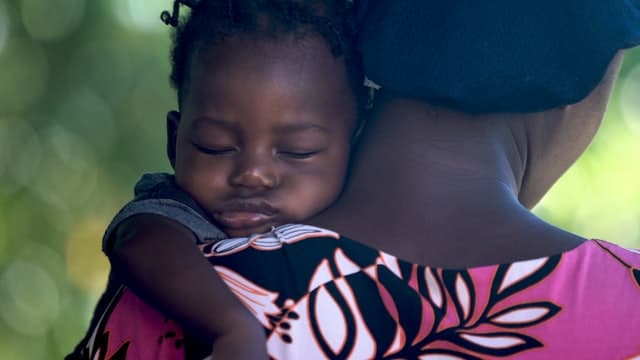
Here are things you can try to find out what calms your baby down.
- Rock your baby in your arms or while sitting in a rocking chair.
- Stroke your baby’s head very gently, or lightly pat her back or chest.
- Make soft noises to let your baby know you are there and you care.
- Talk to your baby.
- Softly sing to your baby or play soft music.
- Wrap her up in a baby blanket (but not too tightly).
If your baby keeps crying after you have tried everything, stay calm. Babies know when you are upset. No matter how stressed you are, never shake your baby. Shaking your baby can cause blindness, brain damage, or even death.
If you need a break, call a relative, neighbour, or friend to help. All babies cry. You will not be able to comfort your baby every time. That does not mean you are a bad parent. Do the best you can to soothe and comfort your baby. And here’s a simple tip to help your baby cry less—carry her. Research shows that babies who are carried more often don’t cry as much as other babies.
Read Also [Coaching as a Parent]
